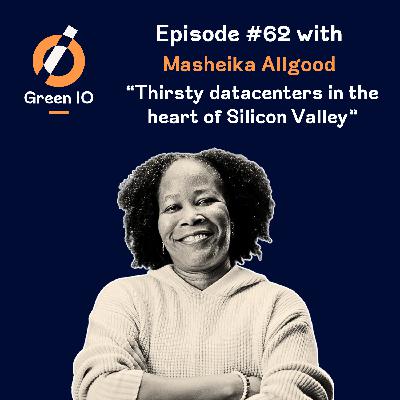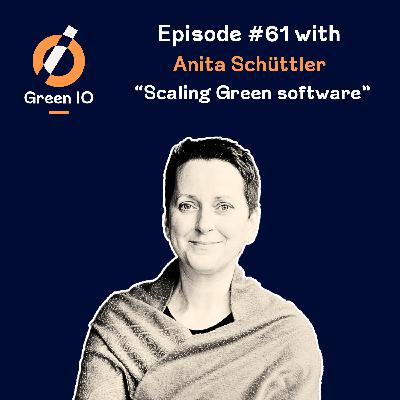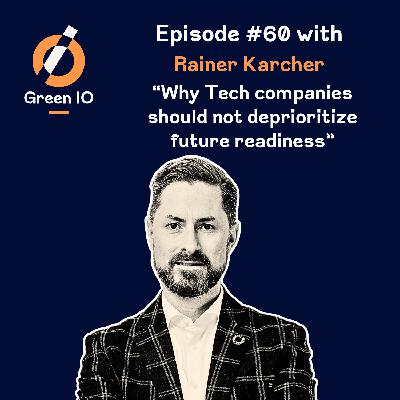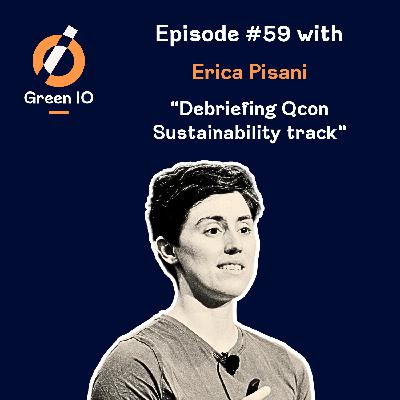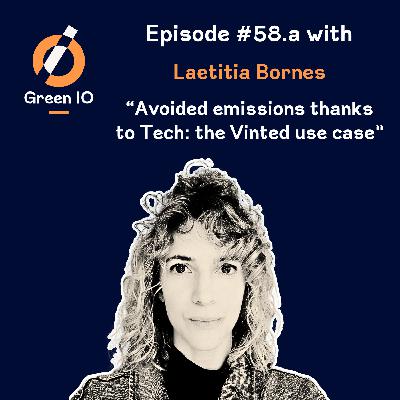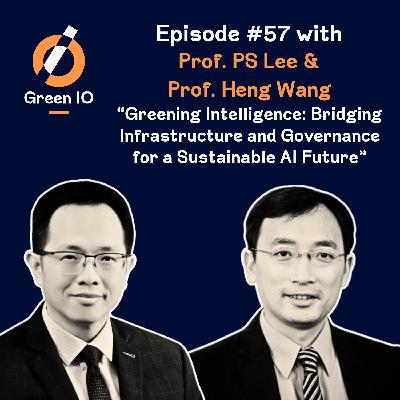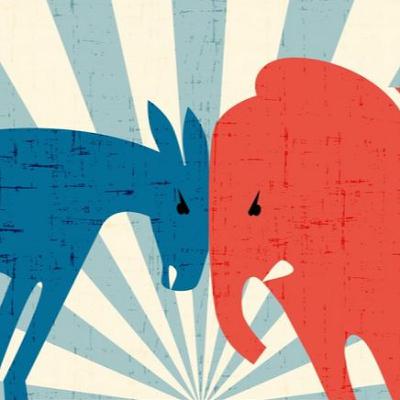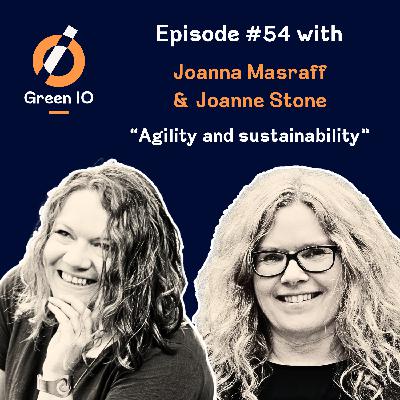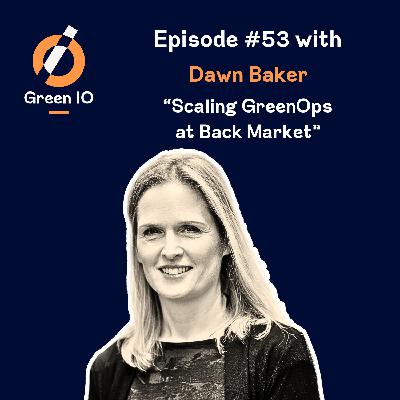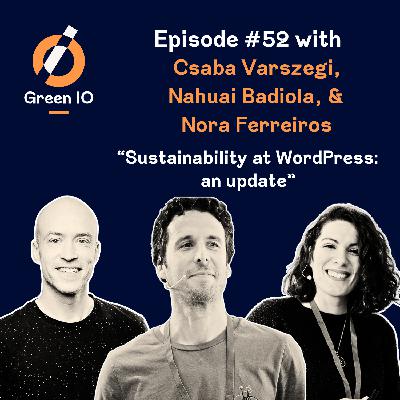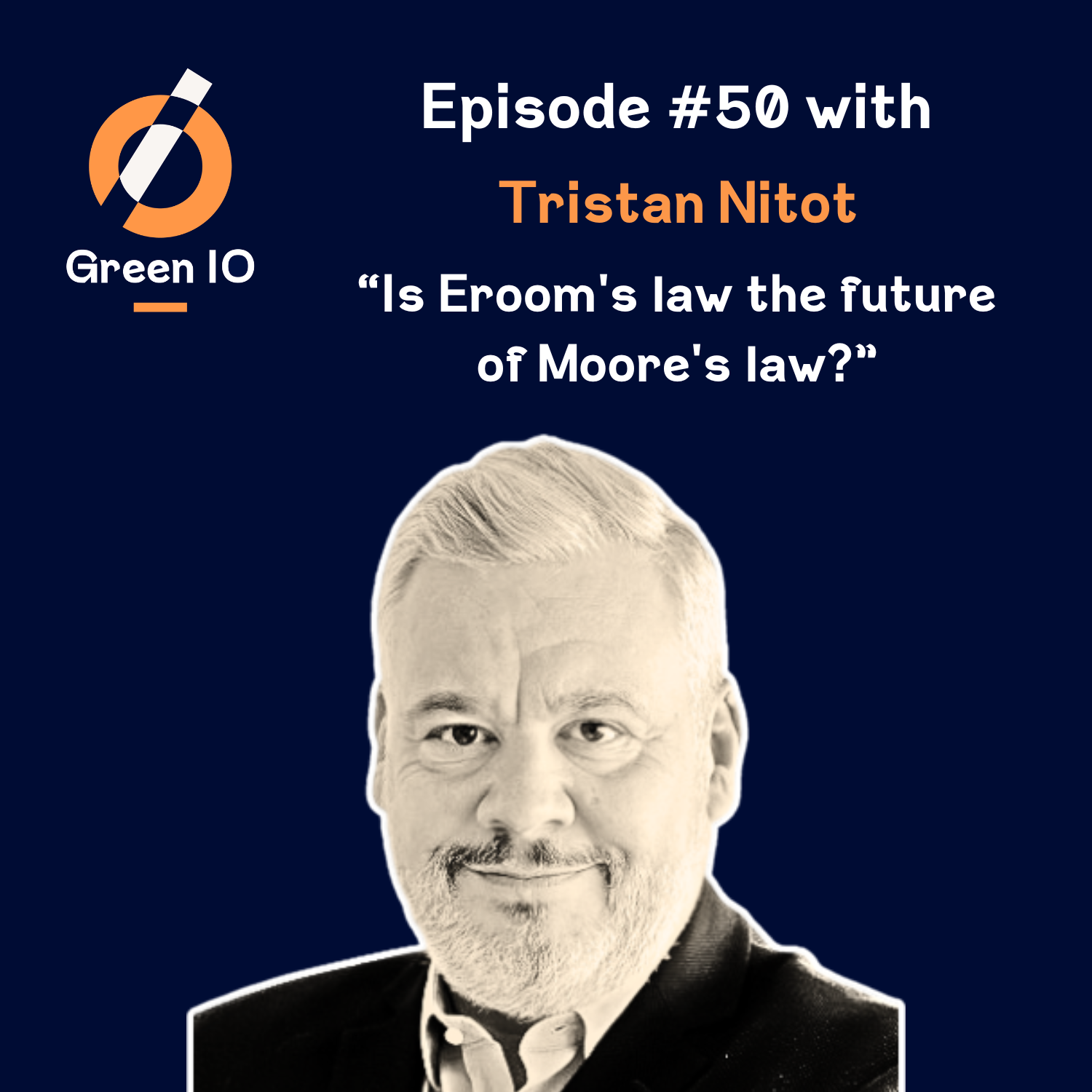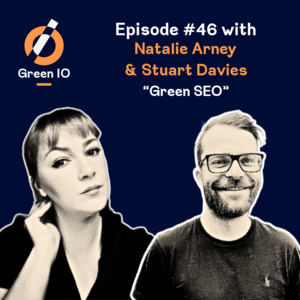#47b - The Microsoft Azure dilemma with Holly and William Alpine - When enabled emissions “offset” sustainability claims
Update: 2024-10-29
Description
They both went to this job interview to hone their skills, and got a dream job at Microsoft! In its fast-growing and AI-pioneered Azure division. With a romance on top of it…
Yet several years later, they decided to both resign. Why? On sustainability ground, and more specifically for the lack of support on “enabled emissions” issues.
Holly and Will Alpine are now the Bonnie & Clyde of Azure and give us insider perspectives, in a nuanced and well-documented way, on this “elephant in the room” about sustainability claims in all big tech companies.
In the final part of this 2-part episode, great insights were shared on :
🤯 What is enabled carbon and why it offsets by far all Microsoft achievements
😈 Devil is in the details from tailored solutions to “carbon-neutral” oil company not following standard definitions of “net-zero”
✨ Can responsible AI principles really not mention anything about the environment?
⚖️ Why regulation will ultimately be needed
♀️✊ And … the Pussy Riot!
❤️ Subscribe, follow, like, ... stay connected the way you want to never miss an episode, twice a month, on Tuesday!
📧 Once a month, you get carefully curated news on digital sustainability packed with exclusive Green IO contents, subscribe to the Green IO newsletter here.
📣 Green IO next Conference is in Paris on December 3rd, 4th and 5th (use the voucher GREENIOVIP to get a free ticket)
Learn more about our guest and connect:
📧 You can also send us an email at greenio@duez.com to share your feedback and suggest future guests or topics.
Holly and Will's sources and other references mentioned in this episode:
- Quarterly Revenues from Microsoft and its cloud division
- Microsoft latest Sustainability Report
- The carbon aware SDK from the Green Web Foundation
- “Carbon-aware computing: Measuring and reducing the carbon footprint associated with software in execution”
- “How a Hackathon Is Slowly Changing The World”
- Measuring the Carbon Intensity of AI in Cloud Instances
- Data center jobs scam by Gerry Mc Govern
- Frac to the Future; Oil’s Digital Rebirth (Barclays)
- Heeding the digital call to action in oil and gas
- “Microsoft’s Hypocrisy on AI” (The Atlantic)
- “I loved my job at Microsoft, but I had to resign on principle. Here’s why” (Fortune)
Transcript (auto-generated)
Gaël Duez (00:00 )
Got it. So if I understand, if I can wrap up the first part of this podcast episode, you joined Microsoft because you believed in the brands. Both of you, you were part of a super strong grassroots movement who achieved significant results when it comes to sustainability across all countries
where Microsoft is operating. You listed some significant achievement, whether it's your local community program, Holly, deploying SCI, not necessarily at scale, but at least testing it in a very serious production environment for you will. So it was pretty good time. Am I correct to say so?
Holly Alpine (00:40 )
Yeah.
Will (00:40 )
I'd say it's been one of the best times of my career thus far, and especially seeing the impact that we've both made at such a scale has been truly rewarding. I'm grateful for the experience.
Gaël Duez (00:50 )
Okay, so thanks a lot for sharing it.
But now I think it's time to ask the $1 million question, At some point, both of you, you decided to leave and you didn't do it that quietly. So could you tell us a bit the story here? And I recall the basis for your decision of Microsoft on cloud and AI. Could you explain us a bit well what you wanted to say with this very strong word.
Will (01:24 )
Let's start with the science. The world needs to reduce emissions by 50 % by 2030 to meet the Paris Agreement targets. And the IEA, a industry friendly group, has stated in its net zero by 2050 report that no new oil and gas natural fields are required beyond those that are already approved for development. So when the science is telling us that we don't need more oil and gas,
We at the same time have technology companies providing advanced technology such as AI, IoT and high-performance computing to oil and gas companies to help them dramatically increase and expand their fossil fuel production. It raises the question, is AI truly a climate tool or is a weapon? Now AI is often hailed as an essential tool to address climate change, but the reality is that it's actually being weaponized by the fossil fuel industry.
And this advanced digital technology is seen as a quote, game changer in optimizing oil and gas exploration, drilling and production, which drives untold emissions and hinders an equitable energy transition. so Microsoft really exemplifies the cognitive dissonance that we're facing here. is promoting AI's potential to expedite decarbonization while simultaneously aggressively marketing its AI solutions and custom technology.
to these fossil fuel giants. And in essence, it's fueling the single biggest industry to the climate crisis. And so the issue that we're actually talking about here is we define as enabled emissions. These enabled emissions are defined as emissions that would have not been possible without the use of advanced technology. And specifically, these enabled emissions are facilitating new oil and gas production and enabling continued fossil fuel expansion.
despite the fact that the science is saying that we don't need to do so.
Gaël Duez (03:20 )
enabled emissions is a core concept here to understand what push you away from Microsoft. this enabled emission concept was something framed internally at Microsoft or was it something more brought by the scientific community?
Will (03:38 )
I don't think we are the first to have coined the term enabled emissions. I believe it's actually an industry term, but it's something that we within Microsoft formalized. Sometimes it's called serviced emissions and there's actually a broad movement around that. And that's specifically in the professional services provider industry. But enabled emissions could better be called technology enabled emissions, which is the specific flavor that we are most familiar with and we're advocating for change around.
Gaël Duez (04:07 )
enabled emissions. Holly, how was it tackled from this huge sustainability community that has been gathered as you described previously as a grassroots movement? Was it something that was discussed?
Holly Alpine (04:22 )
This topic was discussed within the employee community at Microsoft. I would say most employees though were unaware of the extent that Microsoft was supporting increased fossil fuel production. A lot of employees like us work and love Microsoft because of its sustainability commitments and it was really quite
disappointing and devastating to a lot of employees to see so just how deeply Microsoft was embedded with these fossil fuel companies and reading the explicit goals around expanding production with Exxon or generating new exploration opportunities with Chevron or accelerating extracted and refined hydrocarbons with BP. We use the word hypocrisy because
those statements and those very explicit goals are so starkly at odds with Microsoft's extremely outspoken stance on the ethics of technology and sustainability and other quotes from senior leadership around Microsoft's role in climate change and committing to helping the societal conditions to cultivate a net zero economy.
enabling a just transition, mean, extremely strong quotes and stance around pursuing Microsoft's mission and the enormous responsibility to ensure the technology that they build benefits everyone on the planet, including the planet itself. So we did speak internally about this topic and employees were
pretty distraught and I mean a lot of what we heard from employees it was around how the work is hypocritical that Microsoft needs their relationship with customers to focus on renewables and tech innovation and delivering safe and reliable and clean energy. And they hated the idea that as hard as they work as a company to drive sustainability goals,
Got it. So if I understand, if I can wrap up the first part of this podcast episode, you joined Microsoft because you believed in the brands. Both of you, you were part of a super strong grassroots movement who achieved significant results when it comes to sustainability across all countries
where Microsoft is operating. You listed some significant achievement, whether it's your local community program, Holly, deploying SCI, not necessarily at scale, but at least testing it in a very serious production environment for you will. So it was pretty good time. Am I correct to say so?
Holly Alpine (00:40 )
Yeah.
Will (00:40 )
I'd say it's been one of the best times of my career thus far, and especially seeing the impact that we've both made at such a scale has been truly rewarding. I'm grateful for the experience.
Gaël Duez (00:50 )
Okay, so thanks a lot for sharing it.
But now I think it's time to ask the $1 million question, At some point, both of you, you decided to leave and you didn't do it that quietly. So could you tell us a bit the story here? And I recall the basis for your decision of Microsoft on cloud and AI. Could you explain us a bit well what you wanted to say with this very strong word.
Will (01:24 )
Let's start with the science. The world needs to reduce emissions by 50 % by 2030 to meet the Paris Agreement targets. And the IEA, a industry friendly group, has stated in its net zero by 2050 report that no new oil and gas natural fields are required beyond those that are already approved for development. So when the science is telling us that we don't need more oil and gas,
We at the same time have technology companies providing advanced technology such as AI, IoT and high-performance computing to oil and gas companies to help them dramatically increase and expand their fossil fuel production. It raises the question, is AI truly a climate tool or is a weapon? Now AI is often hailed as an essential tool to address climate change, but the reality is that it's actually being weaponized by the fossil fuel industry.
And this advanced digital technology is seen as a quote, game changer in optimizing oil and gas exploration, drilling and production, which drives untold emissions and hinders an equitable energy transition. so Microsoft really exemplifies the cognitive dissonance that we're facing here. is promoting AI's potential to expedite decarbonization while simultaneously aggressively marketing its AI solutions and custom technology.
to these fossil fuel giants. And in essence, it's fueling the single biggest industry to the climate crisis. And so the issue that we're actually talking about here is we define as enabled emissions. These enabled emissions are defined as emissions that would have not been possible without the use of advanced technology. And specifically, these enabled emissions are facilitating new oil and gas production and enabling continued fossil fuel expansion.
despite the fact that the science is saying that we don't need to do so.
Gaël Duez (03:20 )
enabled emissions is a core concept here to understand what push you away from Microsoft. this enabled emission concept was something framed internally at Microsoft or was it something more brought by the scientific community?
Will (03:38 )
I don't think we are the first to have coined the term enabled emissions. I believe it's actually an industry term, but it's something that we within Microsoft formalized. Sometimes it's called serviced emissions and there's actually a broad movement around that. And that's specifically in the professional services provider industry. But enabled emissions could better be called technology enabled emissions, which is the specific flavor that we are most familiar with and we're advocating for change around.
Gaël Duez (04:07 )
enabled emissions. Holly, how was it tackled from this huge sustainability community that has been gathered as you described previously as a grassroots movement? Was it something that was discussed?
Holly Alpine (04:22 )
This topic was discussed within the employee community at Microsoft. I would say most employees though were unaware of the extent that Microsoft was supporting increased fossil fuel production. A lot of employees like us work and love Microsoft because of its sustainability commitments and it was really quite
disappointing and devastating to a lot of employees to see so just how deeply Microsoft was embedded with these fossil fuel companies and reading the explicit goals around expanding production with Exxon or generating new exploration opportunities with Chevron or accelerating extracted and refined hydrocarbons with BP. We use the word hypocrisy because
those statements and those very explicit goals are so starkly at odds with Microsoft's extremely outspoken stance on the ethics of technology and sustainability and other quotes from senior leadership around Microsoft's role in climate change and committing to helping the societal conditions to cultivate a net zero economy.
enabling a just transition, mean, extremely strong quotes and stance around pursuing Microsoft's mission and the enormous responsibility to ensure the technology that they build benefits everyone on the planet, including the planet itself. So we did speak internally about this topic and employees were
pretty distraught and I mean a lot of what we heard from employees it was around how the work is hypocritical that Microsoft needs their relationship with customers to focus on renewables and tech innovation and delivering safe and reliable and clean energy. And they hated the idea that as hard as they work as a company to drive sustainability goals,
Comments
In Channel


